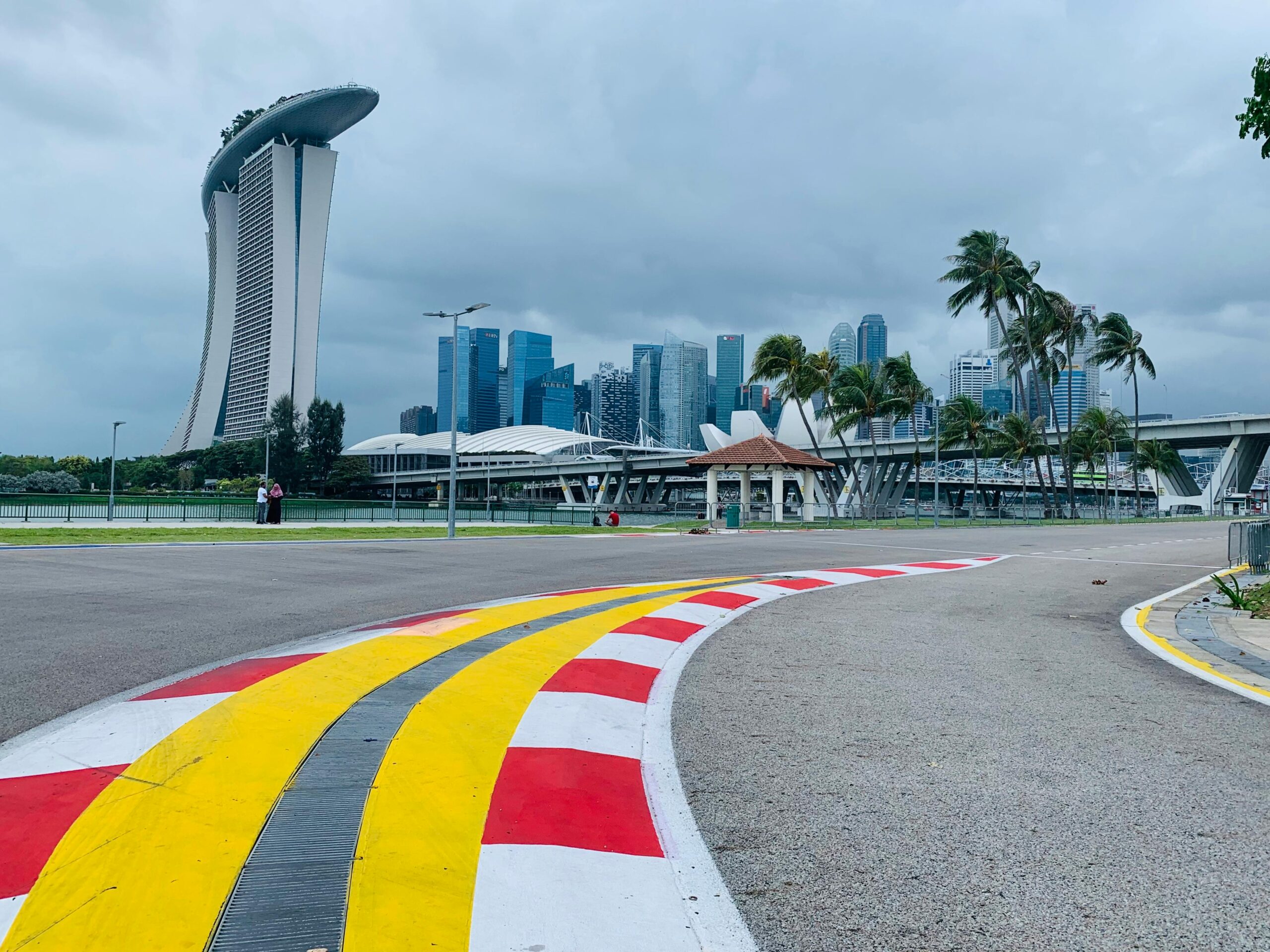Singapore, often referred to as the “Lion City,” has established itself as a global business hub, attracting entrepreneurs and corporations from around the world. The city-state’s strategic location, robust economy, and business-friendly environment make it an ideal place for company registration.
Below, we explore the key benefits that make Singapore a top choice for registering a company.
1. Strategic Location of Singapore
Singapore’s geographical position plays a pivotal role in its prominence as a global business hub. Here are the key Benefits of Registering a Company in Singapore
- Southeast Asia Gateway: Singapore is strategically situated at the southern tip of the Malay Peninsula, making it a gateway to Southeast Asia. It provides unparalleled access to the region’s burgeoning markets, including Indonesia, Malaysia, Thailand, Vietnam, and the Philippines.
- Connectivity: The city-state boasts a world-class transportation infrastructure. Changi International Airport is consistently ranked among the best airports globally, facilitating seamless air travel. Additionally, Singapore’s bustling port—one of the busiest in the world—ensures efficient maritime connectivity to over 600 ports in 123 countries.
- Trade Routes: Historically, Singapore has been a crucial stop along major trade routes. Its location at the crossroads of East and West has fueled its economic growth. The Malacca Strait, a vital shipping lane, passes close to Singapore, enhancing maritime trade.
- Financial Hub: Singapore’s strategic location attracts multinational corporations, financial institutions, and investors. It serves as a hub for finance, trade, and investment, connecting businesses across continents.
- Time Zone Advantage: Singapore operates in the GMT+8 time zone, which bridges the gap between Asian and Western business hours. This facilitates real-time communication and collaboration with global partners
2. Business-Friendly Environment in Singapore

Singapore stands out as one of the most business-friendly countries globally, offering a conducive environment for entrepreneurs and corporations. Here are the key aspects that contribute to this ecosystem:
- Ease of Doing Business: Singapore ranks second in the World Bank’s Ease of Doing Business report, reflecting its streamlined processes and efficient regulatory framework. Entrepreneurs benefit from a simple and efficient tax regime, making it easier to set up and operate businesses.
- Stable Political Climate: Singapore maintains a stable political environment, which is crucial for business continuity and long-term planning. The government’s commitment to free trade and open markets ensures a predictable landscape for investors and companies.
- Intellectual Property Protection: Singapore is highly regarded for its robust intellectual property (IP) protection. It ranks top in Asia and second globally for IP protection, providing a secure environment for innovation and creativity.
- Efficient Business Setup: Setting up a business in Singapore is remarkably quick and straightforward. The process can be completed within 15 minutes online, making it the quickest in Southeast Asia. Additionally, the cost of setting up a company is competitive, with a minimum issued capital requirement of just S$1.
- Thriving Startup Ecosystem: Singapore hosts over 3,000 startups connected to a global network of 500 investors and more than 200 incubators and accelerators. The vibrant startup scene encourages innovation, risk-taking, and collaboration. Notably, Asia-Pacific headquarters of “unicorns” like Grab, Sea, Lazada, and Razer are based here
3. Attractive Tax Regime in Singapore

Singapore’s competitive tax system is a crucial factor behind its appeal as an international business hub. Here are the key aspects that make Singapore’s tax regime attractive:
- Low Corporate Income Tax: Singapore maintains a deliberately competitive corporate income tax rate. Companies benefit from a flat corporate tax rate of 17%, which is significantly lower than many high-tax countries. This encourages foreign investment and supports entrepreneurship.
- Personal Income Tax: For individuals, Singapore’s progressive personal income tax rates are also favorable. The maximum personal income tax rate is capped at 22%, making it attractive for professionals and executives.
- Goods & Services Tax (GST): Singapore introduced the GST in 1994. It is a consumption tax paid when money is spent on goods or services, including imports. The GST rate is currently 7%, which strikes a balance between revenue collection and economic resilience.
- Property Tax: Property owners in Singapore pay property tax based on the expected rental values of their properties. The property tax system is transparent and contributes to government revenue.
- Stamp Duty: Imposed on commercial and legal documents related to stock and shares, as well as immovable property, stamp duty ensures efficient financial transactions.
- Other Taxes: Singapore also levies taxes on gambling activities, estate duty (removed for deaths occurring after February 15, 2008), and casino revenue. These taxes contribute to government operating revenue
4. Robust Infrastructure in Singapore

Digital Connectivity and ICT Infrastructure
World-Class Digital Infrastructure: Singapore boasts best-in-class digital infrastructure. It ranks first in Asia for ICT infrastructure, with impressive statistics:
- 164% mobile penetration rate: A testament to widespread connectivity.
- Top submarine cable hub: Connected to 25 active subsea cables, ensuring seamless global communication.
- Fastest download (87.1 Mbps) and upload speeds (14.9 Mbps) in Southeast Asia.
- Fastest fixed broadband speed in the world.
Transport Network
Aviation Hub: Changi Airport, consistently ranked as the world’s best airport, serves over 100 airlines flying to about 100 countries and territories. With 62 million passengers passing through annually, it’s a vital global air hub.
Changi Airport:
- Best Airport in the world for 31st year in a row (2022).
- Handles 1.85 million Tonnes of air freight annually.
Seletar Airport:
- 700,000 annual passenger capacity at the 10,000 sqm terminal.
- Personalized services for private jet passengers.
- Home to 30 aerospace companies with maintenance, repair, and overhaul operations.
Water Supply
Diversified Water Supply: Singapore ensures a steady water supply for businesses. Government funding in water research and the presence of numerous water companies drive constant innovation in water technology.
5. Intellectual Property Protection in Singapore
Singapore provides one of the world’s most robust regimes for the protection of intellectual property. Here are the key aspects that make Singapore an attractive destination for safeguarding your IP:
Comprehensive Legal Framework:
- The country’s IP framework effectively safeguards various forms of IP, including patents, trademarks, copyrights, and trade secrets.
- The Intellectual Property Office of Singapore (IPOS), a statutory board under Singapore’s Ministry of Law, oversees IP protection in the country.
High Global Ranking:
- In 2019, the World Economic Forum’s Global Competitiveness Index ranked Singapore second in the world for intellectual property protection.
- This high ranking reflects Singapore’s concerted efforts to encourage IP development and registration, as well as its commitment to robust legal frameworks for IP rights.
Types of IP Protection:
- Patent Law: Singapore protects inventive processes or designs through its patent laws. Examples of patented inventions include drug formulas, assembly lines, and technological innovations.
- Copyright Law: Artistic creations, literature, performances, and visual arts receive copyright protection in Singapore.
- Trademark Law: Businesses enjoy exclusive rights to the names or symbols they use to mark their company and goods.
- IP owners can use, sell, or license their IP for profit.
Singapore IP Strategy 2030 (SIPS 2030):
- Developed by more than 10 agencies in consultation with enterprises, innovators, creators, and service providers, SIPS 2030 is Singapore’s 10-year blueprint for the future with IP.
- It aims to chart Singapore’s path as a global IP hub, encouraging innovation, registration, and defense of intellectual property
6. Access to Capital in Singapore
Singapore’s dynamic financial landscape offers a multitude of avenues for businesses to secure capital. Here are the key points that highlight Singapore’s strengths in providing access to capital:
Government Initiatives:
- The Singapore government has launched several initiatives to support high-growth enterprises in raising capital. This includes the establishment of co-investment funds like the Anchor Fund @ 65 and the Growth IPO Fund, which assist promising enterprises in their journey towards public listing.
Startup SG:
-
- Under the Startup SG umbrella, the government offers cash grants, equity financing, and business loans to startups. This program consolidates various startup assistance schemes, providing a one-stop portal for funding sources and mentorship programs.
Equity Financing:
- The Startup SG Equity scheme is an investment fund managed by SPRING Seeds Capital and SGInnovate. It aims to co-invest with private partners in startups that require significant capital expenditure and may take longer to become commercially viable.
Venture Capital & Private Equity:
- Singapore is home to a vibrant venture capital and private equity scene. Startups and growth-stage companies have access to a wide network of investors and funds that specialize in different stages of business development.
Financial Markets:
- The Singapore Exchange (SGX) is a key platform for companies looking to raise capital through public markets. SGX offers a range of fundraising options and has established dual-listing collaborations with overseas exchanges.
Innovation in Financing:
- Singapore’s commitment to innovation in financing is evident through the launch of frameworks like the Special Purpose Acquisition Companies (SPACs), which provide alternative pathways for companies to go public
Disclaimer:
The information provided in this blog post is for general informational purposes only. While we strive to keep the content accurate and up to date, we make no representations or warranties of any kind, express or implied, about the completeness, accuracy, reliability, suitability, or availability of the information. Any reliance you place on such information is strictly at your own risk.
The blog post does not constitute legal, financial, or professional advice. Before making any business decisions, we recommend consulting with qualified professionals who can assess your specific situation and provide tailored guidance.
In no event will we be liable for any loss or damage arising from the use of this blog post. We disclaim any responsibility for errors, omissions, or inaccuracies in the content. Always verify information independently and seek professional advice when necessary.
Remember that business regulations and laws can change, so it’s essential to stay informed and consult experts before taking any significant steps related to company registration or business operations.
